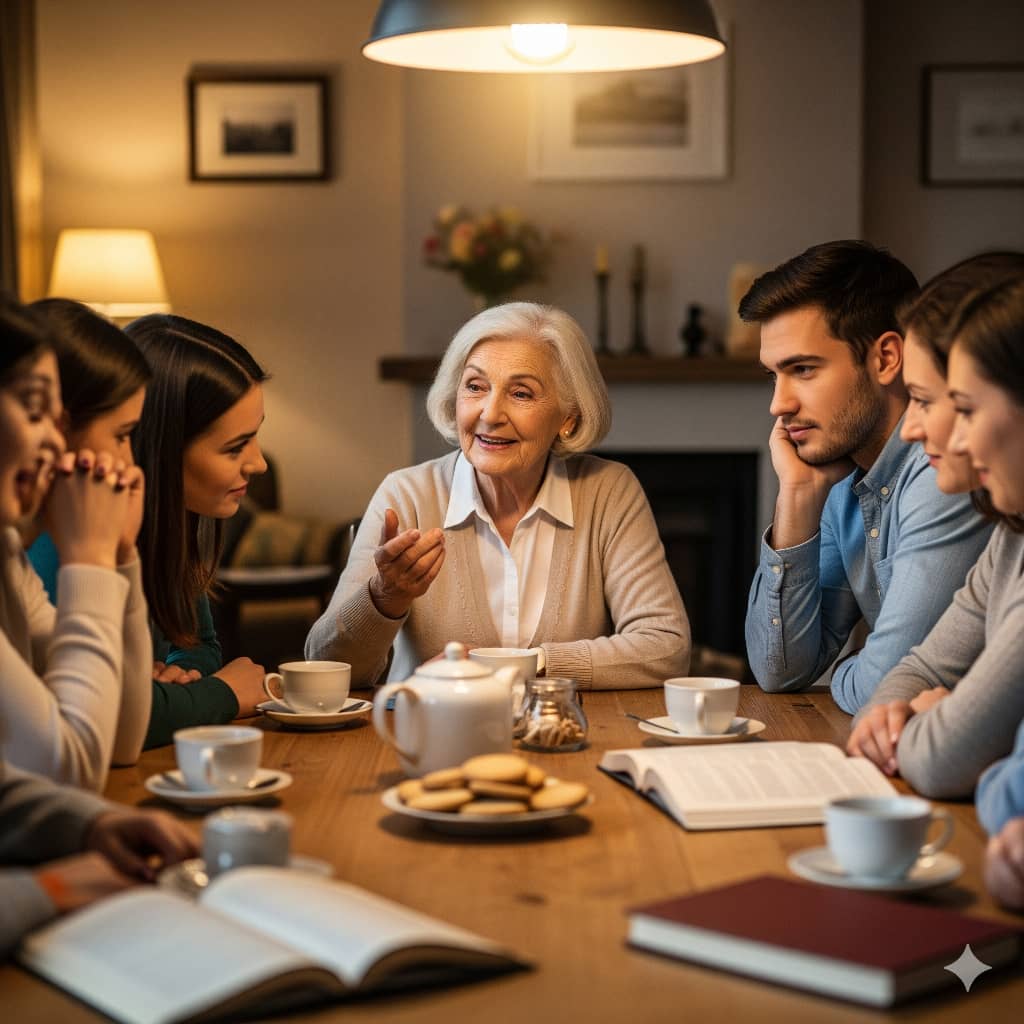Preserving dignity is the foundation of quality senior care at home. Learn practical, compassionate strategies to help your loved one maintain self-worth, autonomy, and personhood. The first time I had to help my father with a shower after his stroke, we both pretended it wasn’t happening. I focused intensely on the practical steps, water temperature, soap, safety, while he stared blankly at the wall, his silence louder than any protest. Later, I found him sitting on his bed, tears streaming down his face. “I never wanted you to see me like this,” he whispered. In that moment, I realized that beyond the physical care, beyond the medications and meal schedules, my most important job was to protect his sense of self. Dignity isn’t a luxury in caregiving, it’s the foundation upon which everything else rests.
Dignity in senior care means recognizing that the person receiving care is still a complete human being with a rich history, personal preferences, and the right to self-determination. It manifests in countless daily interactions: how we knock before entering a room, how we phrase suggestions rather than give commands, how we prioritize privacy during personal care. I learned that preserving dignity isn’t about doing everything for someone, it’s about helping them do as much as possible for themselves, even if it takes longer or requires creativity. When my father struggled to button his shirt, I didn’t take over; I found larger-buttoned shirts and gave him the time he needed. That small autonomy preserved his sense of competence in a world that was gradually taking things away.
Communication forms the bedrock of dignified care. I replaced directives like “You need to take your bath now” with choices: “Would you prefer to shower before breakfast or after?” I learned to speak to my father, not about him, when others were present, including him in conversations rather than talking over him as if he weren’t there. When his memory faltered, I didn’t correct his mistakes unless absolutely necessary; instead, I entered his reality, understanding that factual accuracy mattered less than emotional connection. These linguistic shifts seemed small but fundamentally changed the power dynamic from parent-child to partner-partner.
Personal care presents the greatest challenges to dignity. Bathing, toileting, and dressing involve the most intimate vulnerabilities. We implemented simple modifications that made a profound difference: installing a towel warmer so robes and towels felt luxurious rather than clinical, using a handheld showerhead so he could control his own rinsing, playing his favorite music during personal care to create a spa-like atmosphere rather than a medical procedure. I always explained what I was going to do before touching him and ensured he had as much privacy as possible, draping towels strategically during bathing, knocking and waiting before entering the bathroom. These practices transformed necessary care from something humiliating into something respectful.

Autonomy-supporting technologies helped maintain independence longer. Automatic medication dispensers with alarms allowed my father to manage his own pills until much later in his decline. Voice-activated devices let him control lights, temperature, and entertainment without assistance. A phone with large, programmable buttons kept him connected to friends on his own terms. Each tool that enabled self-sufficiency became a dignity-preserving device, reducing the number of times he had to ask for help and reinforcing his capability.
The physical environment either supports or undermines dignity. We arranged furniture to accommodate his walker without making the house look institutional. We displayed family photos at eye level from his favorite chair rather than where only standing visitors could see them. We kept his favorite books and hobbies within easy reach, communicating that his interests still mattered. These subtle environmental cues constantly reinforced that this was still his home, his territory, his life—not just a place where he received care.
Social inclusion protects against the dignity erosion that isolation brings. Rather than assuming my father wouldn’t want to see people because of his limitations, I helped him host small gatherings with adaptations: serving meals buffet-style so he could plate his own food, choosing well-lit restaurants with accessible bathrooms for outings, inviting friends for activities he could still enjoy like listening to music or looking at photo albums. These connections reminded him—and others—that he was still himself despite his physical changes.
Empowering decision-making preserves personhood. Even when choices narrowed, we found ways to maintain agency: selecting which vegetables to have with dinner, choosing what to watch on television, deciding what to wear each day. When bigger decisions arose about medical care or living arrangements, we presented options and discussed preferences long before crises forced urgent choices. This proactive approach ensured he remained the author of his life story even as his capabilities diminished.
Recognizing the difference between dignity and pride became essential. My father sometimes refused help he genuinely needed to preserve his pride. I learned to distinguish between supporting his dignity (his inherent worth) and enabling his pride (his resistance to vulnerability). Offering help in ways that emphasized partnership, “Let’s get this done together”, rather than dependence made acceptance easier. Sometimes humor helped: “We all need a little help sometimes, remember when you taught me to tie my shoes?”
Celebrating remaining abilities shifted focus from loss to capacity. We created opportunities for him to contribute meaningfully: asking his advice on household repairs, having him fold laundry, involving him in meal preparation tasks he could handle. These contributions reinforced his value to the household beyond being someone who needed care. The light in his eyes when he successfully taught his grandson to whittle—adapting the tools for his trembling hands, reminded me that dignity flourishes when we feel useful.
Ultimately, maintaining dignity requires seeing the whole person, not just the current needs. It means remembering that the man struggling with a spoon was once the father who fixed your bicycle, that the woman who forgets your name was once the mother who read you bedtime stories. Dignity-preserving care honors the entire lifespan, connecting past identity with present reality. It’s the difference between caring for a body and caring for a person, between extending life and making life worth extending.
The most profound lesson I learned was that dignity isn’t something we give our loved ones; it’s something we help them retain by creating conditions where their inherent worth can shine through despite physical or cognitive challenges. And in doing so, we not only honor them, we become better, more compassionate human beings ourselves.
References
Valorum Care Group. (2024, June 29). The importance of dignity and respect in elderly care. https://www.valorumcaregroup.com/blog/the-importance-of-dignity-and-respect-in-elderly-care/
This article explores how personalized care, politeness, encouraging independence, sensitive hygiene assistance, and clear communication uphold dignity for seniors.
The Good Care Group. (2025, January 29). 8 ways to promote dignity in care. https://www.thegoodcaregroup.com/news/8-ways-promote-dignity-care/
Discusses practical strategies like respecting choices, involving seniors in decisions, and treating them with kindness to sustain their self-worth.
Always Best Care. (2025, April 9). Dignity and respect in care [+ how to support elderly patients]. https://alwaysbestcare.com/resources/dignity-respect-in-care/
Highlights seven core principles vital to dignity in elder care including autonomy, beneficence, non-maleficence, and fidelity.
BeyondWell Home Care. (2025, March 17). 5 reasons preserving dignity is important for aging adults. https://beyondwellhomecare.com/why-is-maintaining-dignity-essential-for-elderly-people/
Explains how dignity reduces feelings of burden, protects family relationships, prevents mental health issues, promotes physical health, and shows honor and respect.
FirstLight Home Care. (2025, May 26). Aging with dignity: Ways to support loved ones. https://www.firstlighthomecare.com/blog/aging-with-dignity/
Offers guidance on empowering elderly loved ones to maintain autonomy and respect, thereby preserving their sense of self-worth while aging at home.

